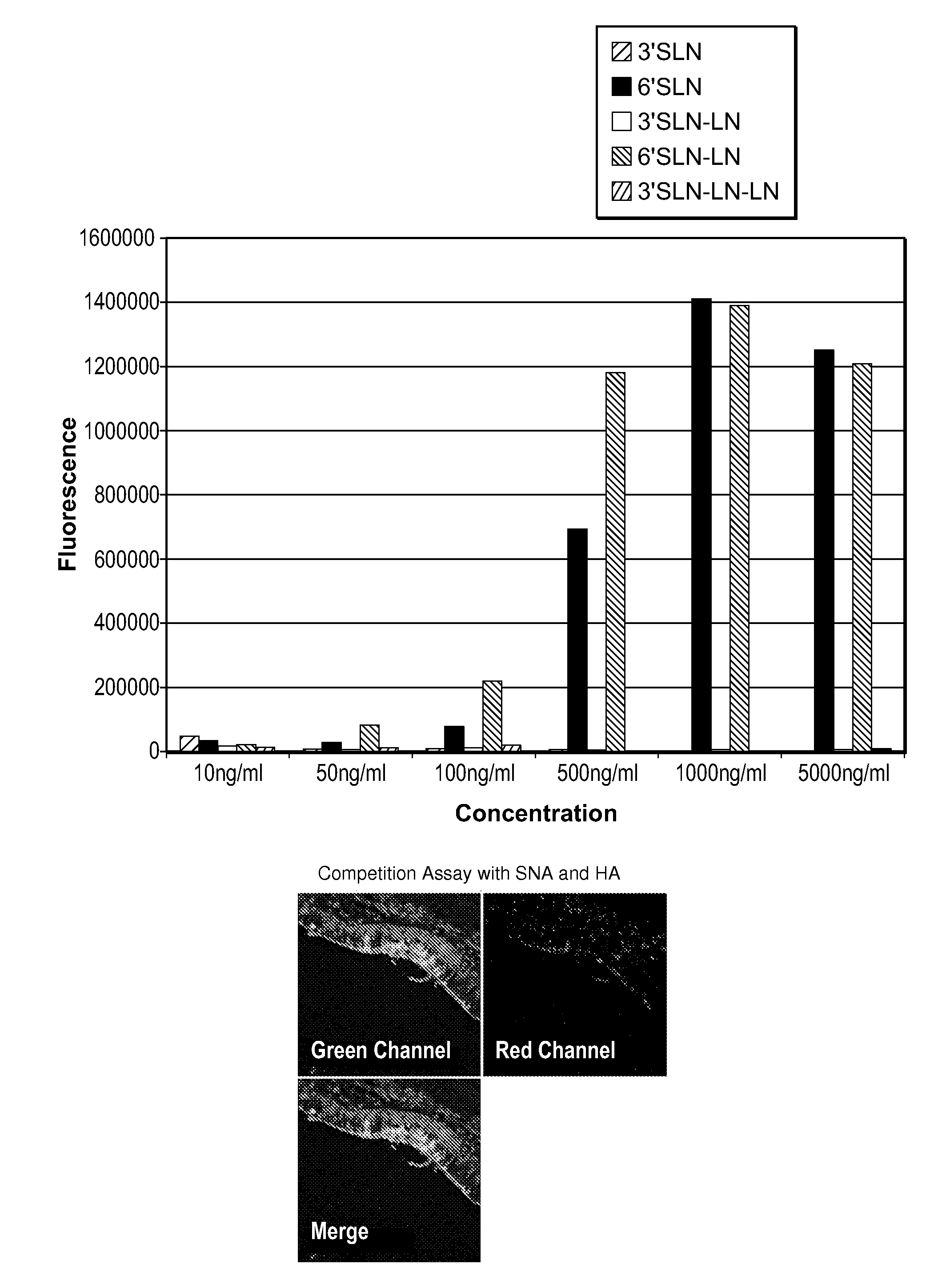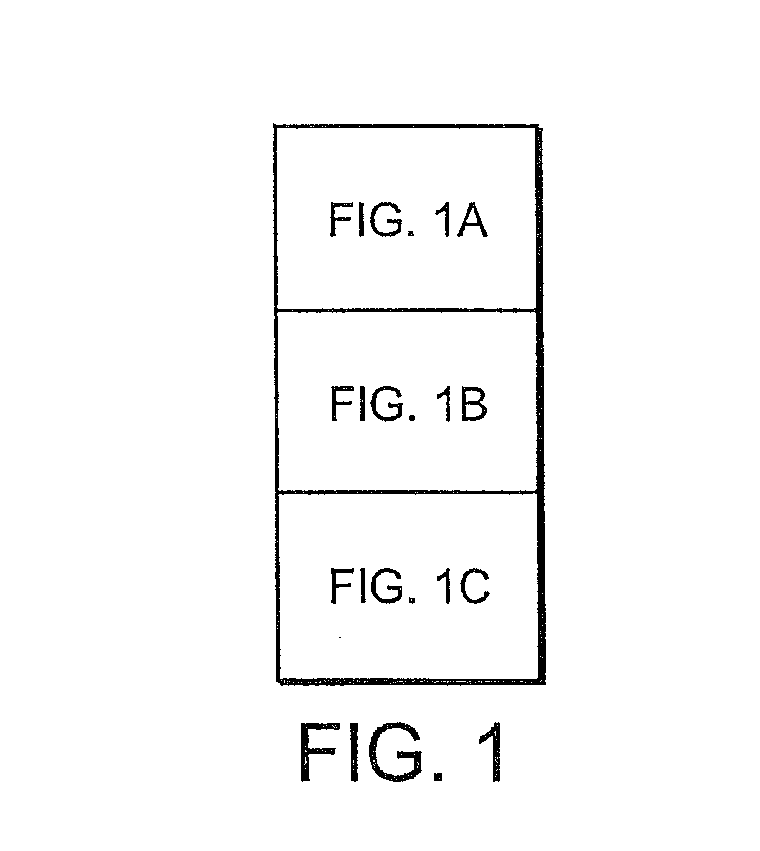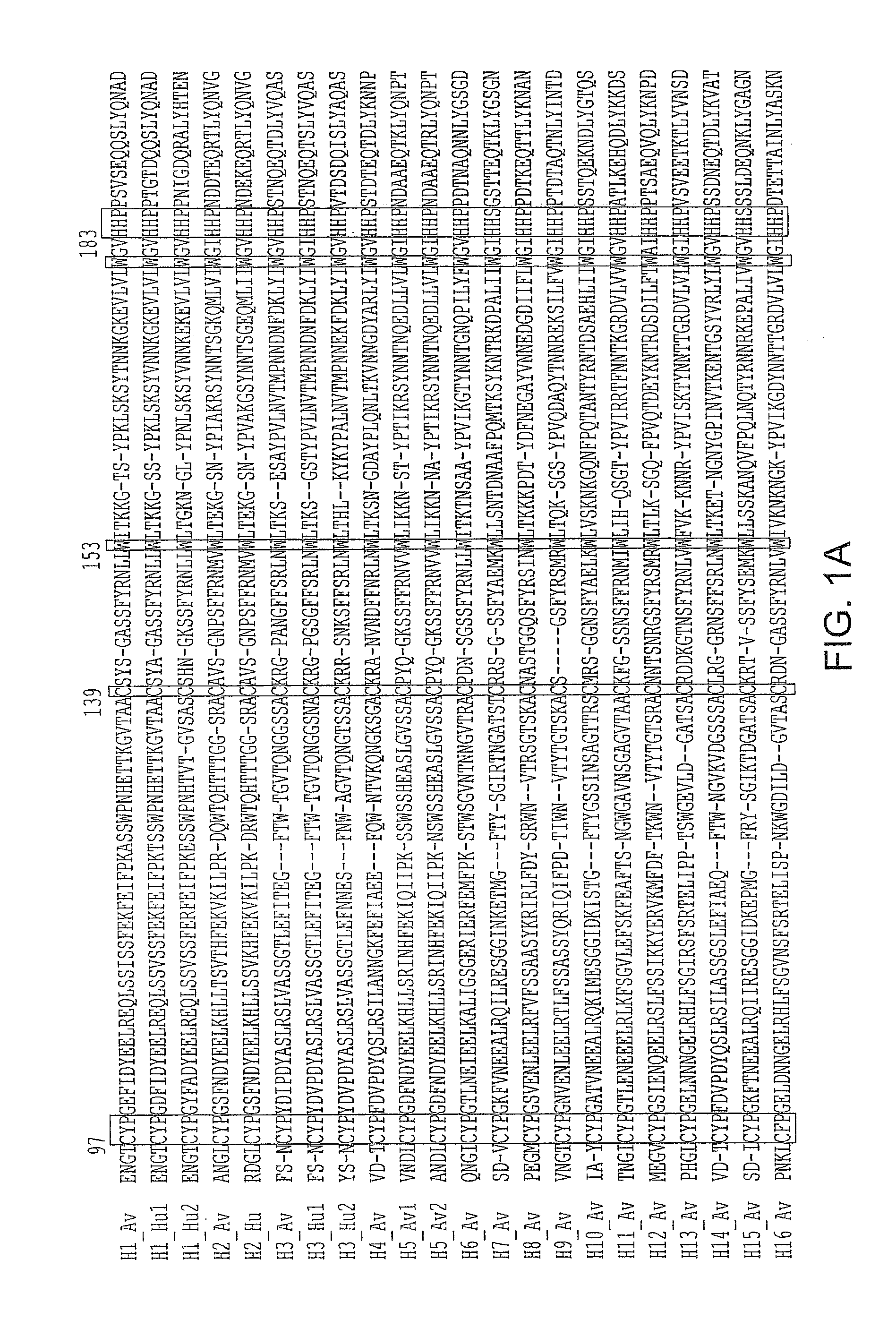Hemagglutinin Polypeptides, and Reagents and Methods Relating Thereto
a technology of hemagglutinin and polypeptides, which is applied in the direction of viruses, peptide/protein ingredients, dna/rna fragmentation, etc., can solve the problem that humans currently only have limited ability to infect humans, and achieve high affinity and/or specificity
- Summary
- Abstract
- Description
- Claims
- Application Information
AI Technical Summary
Benefits of technology
Problems solved by technology
Method used
Image
Examples
example 1
Framework for Binding Specificity of H1, H3 and H5 has to α2-3 and α2-6 Sialylated Glycans
[0289]Crystal structures of HAs from H1 (PDB IDS: 1RD8, 1RU7, 1RUY, 1RV0, 1RVT, 1RVX, 1RVZ), H3 (PDB IDs: 1MQL, 1MQM, 1MQN) and H5 (1JSN, 1JSO, 2FK0) and their complexes with α2-3 and / or α2-6 sialylated oligosaccharides have provided molecular insights into residues involved in specific HA-glycan interactions. More recently, the glycan receptor specificity of avian and human H1 and H3 subtypes has been elaborated by screening the wild type and mutants on glycan arrays comprising of a variety of α2-3 and α2-6 sialylated glycans.
[0290]The Asp 190Glu mutation in the HA of the 1918 human pandemic virus reversed its specificity from α2-6 to α2-3 sialylated glycans (Stevens et al., J. Mol. Biol., 355:1143, 2006; Glaser et al., J. Virol., 79:11533, 2005). On the other hand, the double mutation Glu190Asp and Gly225Asp on an avian H1 (A / Duck / Alberta / 35 / 1976) reversed its specificity from α2-3 to α2-6 si...
example 2
Cloning Baculovirus Synthesis Expression and Purification of HA
[0313]Hemagglutinin in viruses is present as a trimer and is anchored to the membrane. The full length construct of HA has a N-terminal signal peptide and a C-terminal transmembrane sequence. For recombinant expression of HA, often a shortened construct of HA is used which allows the protein to be secreted. This shortened soluble construct is created by replacing the HA's N-terminal signal peptide with a Gp67 signal peptide sequence and the C-terminal transmembrane region is replaced by a ‘foldon’ sequence followed by a tryptic cleavage site and a 6×-His tag (Stevens et al., J. Mol. Biol., 355:1143, 2006). Both full length and the soluble form of HA were expressed in insect cells. Suspension cultures of Sf-9 cells in Sf900 II SFM medium (Invitrogen) were infected with baculoviruses containing either full length or soluble form of HA. The cells were harvested 72-96 hours post infection.
[0314]Hemagglutinin (HA) from A / Viet...
example 3
Application of Data Mining Platform to Investigate Glycan Binding Specificity of HA
[0318]A framework for the binding of H5N1 subtype to α2-3 / 6 sialylated glycans was developed (FIG. 7). This framework comprises two complementary analyses. The first involves a systematic analysis of an HA glycan binding site and its interactions with α2-3 and α2-6 sialylated glycans using the H1, H3 and H5 HA-glycan co-crystal structures (Table 2).
[0319]This analysis provides important insights into the interactions of an HA glycan binding site with a variety of α2-3 / 6 sialylated glycans, including glycans of either umbrella or cone topology. The second involves a data mining approach to analyze the glycan array data on the different H1, H3 and H5 HAs. This data mining analysis correlates the strong, weak and non-binders of the different wild type and mutant HAs to the structural features of the glycans in the microarray (Table 3).
[0320]Importantly, these correlations (classifiers) capture the effect...
PUM
| Property | Measurement | Unit |
|---|---|---|
| mean particle size | aaaaa | aaaaa |
| mean particle size | aaaaa | aaaaa |
| mean particle size | aaaaa | aaaaa |
Abstract
Description
Claims
Application Information
 Login to View More
Login to View More - R&D
- Intellectual Property
- Life Sciences
- Materials
- Tech Scout
- Unparalleled Data Quality
- Higher Quality Content
- 60% Fewer Hallucinations
Browse by: Latest US Patents, China's latest patents, Technical Efficacy Thesaurus, Application Domain, Technology Topic, Popular Technical Reports.
© 2025 PatSnap. All rights reserved.Legal|Privacy policy|Modern Slavery Act Transparency Statement|Sitemap|About US| Contact US: help@patsnap.com



